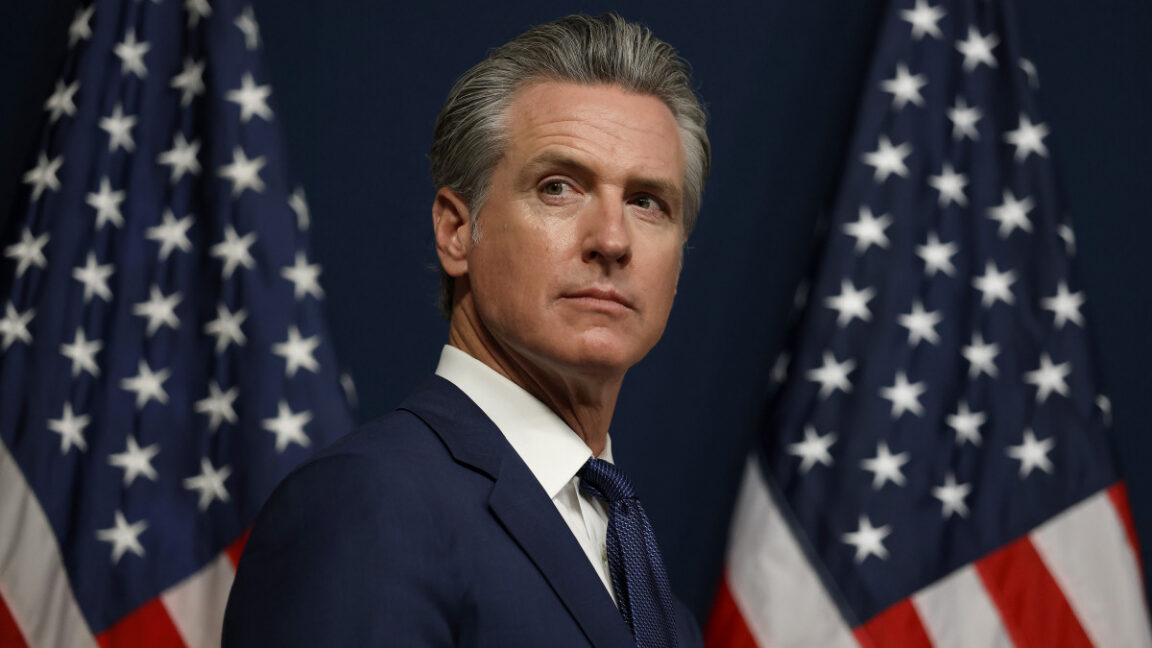California Enacts AI Transparency Law, Critics Say It Favours Big Tech

Key Points
- Governor Gavin Newsom signed the Transparency in the Frontier AI Act.
- Applies to AI firms with annual revenues of at least $500 million.
- Requires public posting of safety protocols and reporting of critical incidents.
- Critical incidents defined as potentially causing 50 deaths, $1 billion in damage, or weaponized AI misuse.
- Focuses on disclosure, not mandatory safety testing or independent audits.
- Provides whistleblower protections and civil penalties up to $1 million per violation.
- Critics say the law aligns with Big Tech’s preferred regulatory approach.
California Governor Gavin Newsom signed the Transparency in Frontier Artificial Intelligence Act, requiring AI firms with annual revenues of at least $500 million to publish safety protocols and report critical incidents. The law focuses on disclosure rather than mandatory safety testing, defining catastrophic risk as incidents that could cause 50 or more deaths, $1 billion in damage, or weaponized AI misuse. While the measure offers whistleblower protections and civil penalties up to $1 million per violation, industry observers argue it stops short of robust safeguards and aligns with Big Tech’s preferred regulatory approach.
Background and Legislative Intent
Governor Gavin Newsom signed the Transparency in Frontier Artificial Intelligence Act, a state law aimed at increasing openness around AI development. The legislation targets companies with annual revenues of at least $500 million, obligating them to post safety protocols on their websites and to report potential critical safety incidents to California’s Office of Emergency Services.
Key Provisions
The law emphasizes disclosure rather than mandated testing. Companies must describe how they incorporate national, international, and industry‑consensus standards into their AI work, though the statute does not specify which standards apply or require independent verification. It also establishes whistleblower protections for employees who raise safety concerns.
Critical incidents are narrowly defined as events that could cause 50 or more deaths, result in $1 billion in damage, or involve weaponized AI, autonomous criminal acts, or loss of control. Violations of reporting requirements may incur civil penalties of up to $1 million per infraction.
Comparison to Earlier Proposals
The new act replaces an earlier bill, S.B. 1047, which would have mandated safety testing and “kill switches” for AI systems. The earlier proposal was vetoed after intense lobbying by technology firms. By shifting focus to reporting and transparency, the current law reflects a compromise that many critics say aligns with the preferences of large AI companies.
Industry Reaction and Criticism
Industry observers contend that the law’s reliance on voluntary disclosures lacks the enforcement teeth needed to ensure real safety safeguards. They point to the omission of mandatory testing and independent audits as a concession to Big Tech, which had lobbied heavily against stricter measures.
Potential Impact
California houses a substantial portion of the world’s leading AI firms, and its regulatory moves are likely to influence broader national and international discussions on AI governance. While the law introduces reporting mechanisms and penalties, its effectiveness will depend on how rigorously companies comply and how state authorities enforce the provisions.